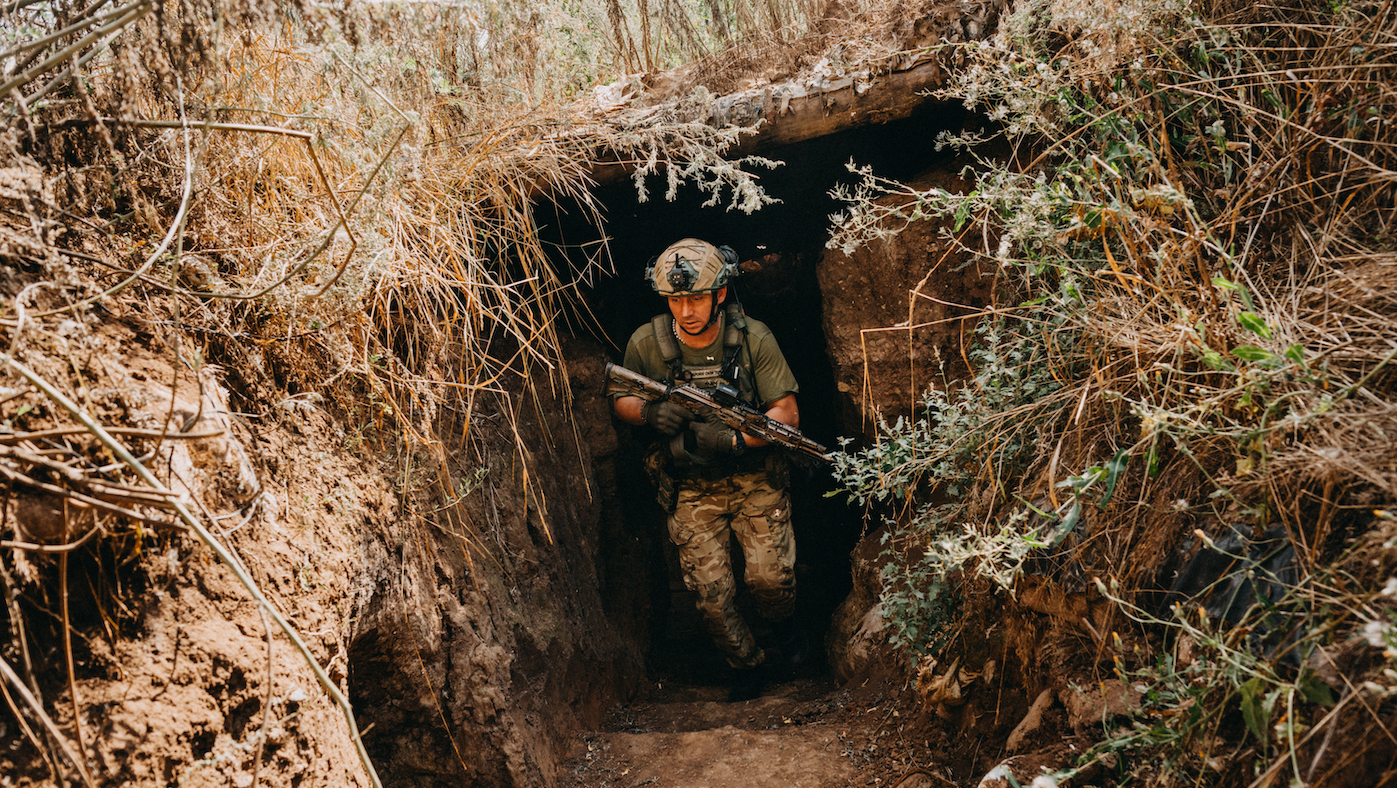How much is the Russia-Ukraine war costing?
Kyiv faces $400 billion rebuilding bill and military spending could soon catch up with Russia’s economy

A free daily email with the biggest news stories of the day – and the best features from TheWeek.com
You are now subscribed
Your newsletter sign-up was successful
It’s been almost 18 months since Russia began its invasion of Ukraine and an end to the conflict between the two states seems no closer.
Thousands of people have died, millions have been forced from their homes, and there has been extensive damage to infrastructure across Ukraine. And as the war rages on, the financial cost to both sides continues to rise higher and higher and have far-reaching effects on the global economy.
Yet the “billions of dollars’ worth” of damage caused in Ukraine has come at a “relatively mild cost to Russia”, said The Economist. Its economy is “holding up much better than almost anyone expected” despite the ongoing military costs and punitive financial sanctions imposed by the West. However, a return to economic prosperity “remains a long way off” for Russia despite having “defied early expectations”, said Reuters.
The Week
Escape your echo chamber. Get the facts behind the news, plus analysis from multiple perspectives.

Sign up for The Week's Free Newsletters
From our morning news briefing to a weekly Good News Newsletter, get the best of The Week delivered directly to your inbox.
From our morning news briefing to a weekly Good News Newsletter, get the best of The Week delivered directly to your inbox.
For Ukraine and its allies, even after the war ends the costs will be felt for years. The World Bank predicted in March that it will cost “$411 billion over the next 10 years” to “recover and rebuild” after Russia’s invasion and bombardment, said Al Jazeera.
The cost to Ukraine and its allies
Before even considering the eventual cost of rebuilding, Ukraine is already relying on support to keep “services and infrastructure afloat”, said The Kyiv Independent. Its peacetime budget before the war was around $48 billion in 2021, according to Prime Minister Denys Shmyhal, but it has already spent $50 billion maintaining public services and infrastructure.
Half of its budget is “subsidised by Ukraine’s foreign partners”, with the US and the European Union the biggest contributors. The total aid provided, including military aid, stands at €165 billion ($181 billion) as of 31 May, according to the Kiel Institute for the World Economy.
The US has already committed more than $60 billion in total, with more than $40 billion of that being military aid, an investment in an “ally not seen since at least World War II”, said The Washington Post.
A free daily email with the biggest news stories of the day – and the best features from TheWeek.com
However, that still represents just 0.33% of the US’s GDP, while smaller countries neighbouring Ukraine, like Estonia, Latvia and Poland, have contributed much higher proportions. Nevertheless, the ongoing cost of the war means “popular support for funding the war is wavering” in the US, particularly among Republicans, said the Post.
But the cost to Ukraine will be felt on a much wider scale even after the end of the war. The World Bank estimates the invasion has “undone 15 years of economic progress in Ukraine” as well as cutting its GDP by 29% and “pushing 1.7 million Ukrainians into poverty”, said Al-Jazeera.
The World Bank report expected Ukraine to require “$14bn for critical and priority reconstruction” in 2023 and estimated that $135 billion of damage had been done as of March 2023, though it may have been “even worse if not for the defence mounted by Ukrainian forces”.
The effect on Russia
Understanding Russia’s spending accurately is difficult given its “murky” budget, “especially its military one”, said The Economist. But the “direct fiscal cost of the war” to Russia is “surprisingly low”, it argued, estimating Russia spent 3% of GDP on its war with Ukraine.
In a historical context, that is a “puny amount”, but there are political and economic reasons for not spending more, including maintaining its “special military operation” facade and avoiding “costing its citizens dearly” by a rapid expansion.
Oleg Itskhoki, a sanctions expert at the University of California, however, told The Guardian that Russia’s increased military bill will have pushed that GDP figure “towards 7%” and that it was “reasonable to believe there is not much” money remaining.
Russia avoided an expected “double-digit contraction” in 2022, but does face a “battle to keep its budget deficit in check” as it spends more on its military, said Reuters. Even if its economy grows by its own estimation of 1.2% this year, “global isolation and lower energy revenues” threaten to “dampen Russia’s prospects for years to come”.
The current growth in Russia’s economy is fuelled “primarily by defence spending”, which in turn is stimulating some industries but cutting output in those with “no obvious military connections”, argues Alexandra Prokopenko at The Bell.
But this defence spending in the long term could cause “lower productivity” overall, as well as “disruption to education” and “higher risks of a military escalation”. The longer Russia continues to spend in this manner on defence, Prokopenko said, the “greater the hangover will be when the time comes to again prioritise civilian production”.
Richard Windsor is a freelance writer for The Week Digital. He began his journalism career writing about politics and sport while studying at the University of Southampton. He then worked across various football publications before specialising in cycling for almost nine years, covering major races including the Tour de France and interviewing some of the sport’s top riders. He led Cycling Weekly’s digital platforms as editor for seven of those years, helping to transform the publication into the UK’s largest cycling website. He now works as a freelance writer, editor and consultant.